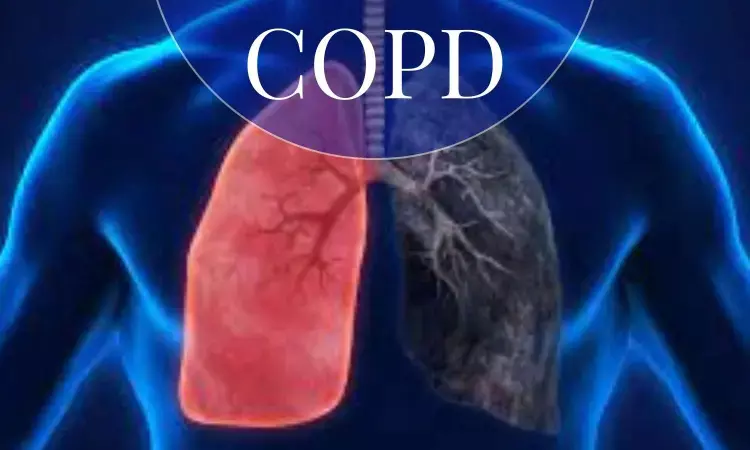- Home
- Medical news & Guidelines
- Anesthesiology
- Cardiology and CTVS
- Critical Care
- Dentistry
- Dermatology
- Diabetes and Endocrinology
- ENT
- Gastroenterology
- Medicine
- Nephrology
- Neurology
- Obstretics-Gynaecology
- Oncology
- Ophthalmology
- Orthopaedics
- Pediatrics-Neonatology
- Psychiatry
- Pulmonology
- Radiology
- Surgery
- Urology
- Laboratory Medicine
- Diet
- Nursing
- Paramedical
- Physiotherapy
- Health news
- Fact Check
- Bone Health Fact Check
- Brain Health Fact Check
- Cancer Related Fact Check
- Child Care Fact Check
- Dental and oral health fact check
- Diabetes and metabolic health fact check
- Diet and Nutrition Fact Check
- Eye and ENT Care Fact Check
- Fitness fact check
- Gut health fact check
- Heart health fact check
- Kidney health fact check
- Medical education fact check
- Men's health fact check
- Respiratory fact check
- Skin and hair care fact check
- Vaccine and Immunization fact check
- Women's health fact check
- AYUSH
- State News
- Andaman and Nicobar Islands
- Andhra Pradesh
- Arunachal Pradesh
- Assam
- Bihar
- Chandigarh
- Chattisgarh
- Dadra and Nagar Haveli
- Daman and Diu
- Delhi
- Goa
- Gujarat
- Haryana
- Himachal Pradesh
- Jammu & Kashmir
- Jharkhand
- Karnataka
- Kerala
- Ladakh
- Lakshadweep
- Madhya Pradesh
- Maharashtra
- Manipur
- Meghalaya
- Mizoram
- Nagaland
- Odisha
- Puducherry
- Punjab
- Rajasthan
- Sikkim
- Tamil Nadu
- Telangana
- Tripura
- Uttar Pradesh
- Uttrakhand
- West Bengal
- Medical Education
- Industry
Blood eosinophil-directed steroid therapy may improve acute exacerbation of COPD

Patients with Chronic Obstructive Pulmonary Disease (COPD) often face exacerbations of their condition, which may require treatment with systemic glucocorticoids. While these steroids can provide relief, their use is associated with potential harm.
Researchers have explored an innovative approach to minimize systemic glucocorticoid use during COPD exacerbations by using blood eosinophil biomarkers to guide therapy. This strategy aims to reduce steroid consumption without compromising patient outcomes.
Researchers have found in a new study that Blood eosinophil-directed prednisolone therapy at the time of an acute exacerbation of COPD is non-inferior to standard care and can be used to safely reduce systemic glucocorticoid use in clinical practice.
The study was published in The Lancet by Sanjay Ramakrishnan and colleagues.
The STARR2 study, a double-blind, placebo-controlled trial conducted in the UK, assessed the effectiveness of eosinophil biomarker-directed oral prednisolone therapy during COPD exacerbations. The trial sought to determine whether this approach could safely reduce systemic glucocorticoid use without negatively impacting patient outcomes.
The study included 308 participants recruited from 14 general practices. These participants had a COPD diagnosis, were aged 40 or older, and had a history of at least one exacerbation requiring systemic corticosteroids in the previous year. They were randomly assigned to two groups: one receiving blood eosinophil-directed treatment (BET) and the other following standard care treatment (ST). The BET group received oral prednisolone if their blood eosinophil count was high (≥2%) and a placebo if it was low (<2%). The ST group received prednisolone regardless of their eosinophil count. All patients also received antibiotics.
The primary outcome measured was the rate of treatment failure within 30 days after an exacerbation. Treatment failure was defined as the need for re-treatment with antibiotics or steroids, hospitalization for any cause, or death. The analysis of 144 exacerbations (73 in the BET group and 71 in the ST group) showed that there were 14 (19%) treatment failures in the BET group compared to 23 (32%) in the ST group. Although the observed difference was not statistically significant (RR 0.60 [95% CI 0.33–1.04]; p=0.070), the non-inferiority analysis supported that BET was non-inferior to ST.
The frequency of adverse events was similar between the two groups, with glycosuria and hospital admission for COPD exacerbation being the most common adverse events. Importantly, no deaths occurred during the study.
The STARR2 study suggests that using blood eosinophil-directed prednisolone therapy during acute COPD exacerbations is non-inferior to standard care. This approach offers a safe and effective means to reduce systemic glucocorticoid use, a significant development in COPD management. By utilizing eosinophil biomarkers to guide treatment, healthcare providers can enhance patient care while minimizing the potential harm associated with steroid use during exacerbations.
Reference:
Ramakrishnan, S., Jeffers, H., Langford-Wiley, B., Davies, J., Thulborn, S. J., Mahdi, M., A’Court, C., Binnian, I., Bright, S., Cartwright, S., Glover, V., Law, A., Fox, R., Jones, A., Davies, C., Copping, D., Russell, R. E. K., & Bafadhel, M. Blood eosinophil-guided oral prednisolone for COPD exacerbations in primary care in the UK (STARR2): a non-inferiority, multicentre, double-blind, placebo-controlled, randomised controlled trial. The Lancet. Respiratory Medicine,2023. https://doi.org/10.1016/s2213-2600(23)00298-9
Dr Kamal Kant Kohli-MBBS, DTCD- a chest specialist with more than 30 years of practice and a flair for writing clinical articles, Dr Kamal Kant Kohli joined Medical Dialogues as a Chief Editor of Medical News. Besides writing articles, as an editor, he proofreads and verifies all the medical content published on Medical Dialogues including those coming from journals, studies,medical conferences,guidelines etc. Email: drkohli@medicaldialogues.in. Contact no. 011-43720751


